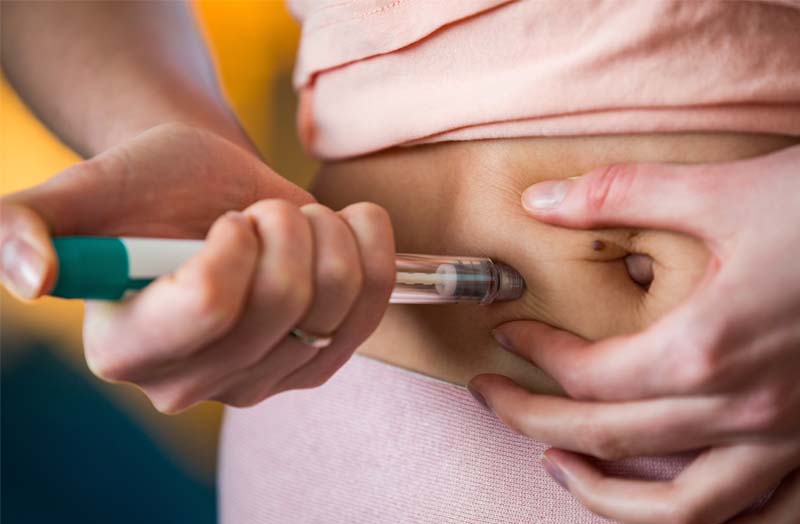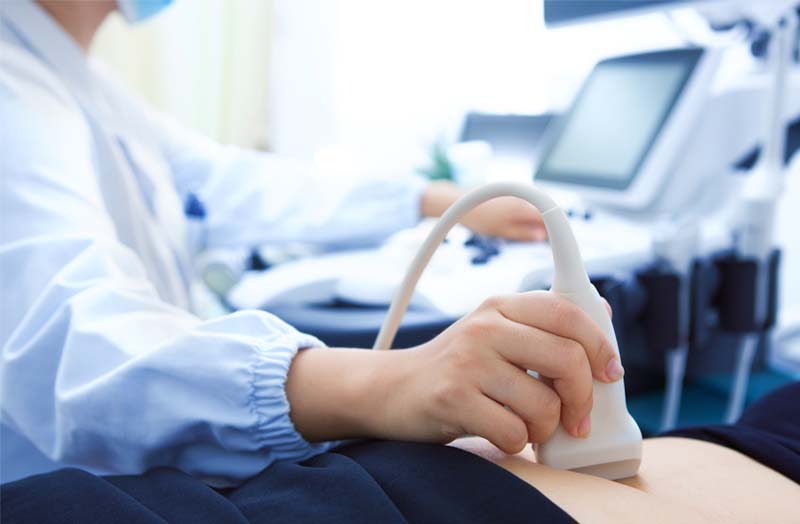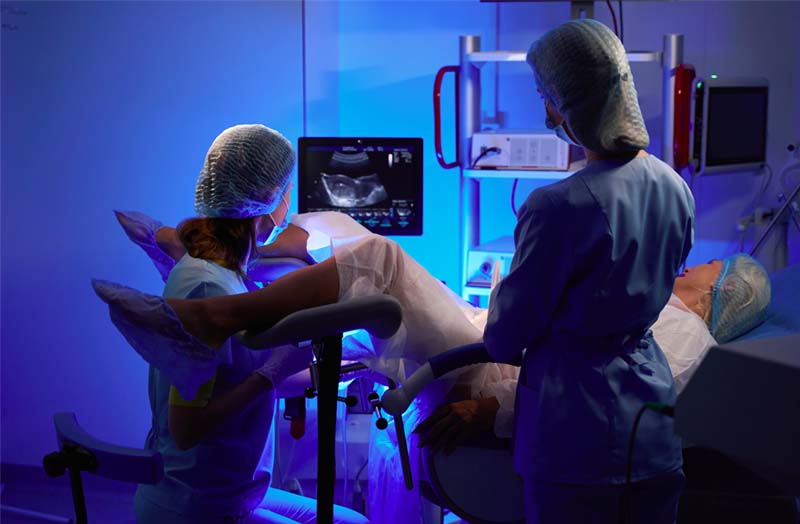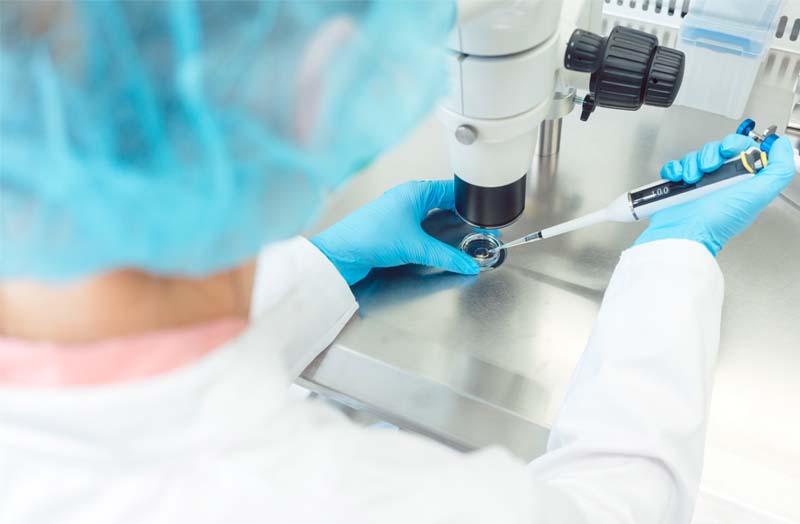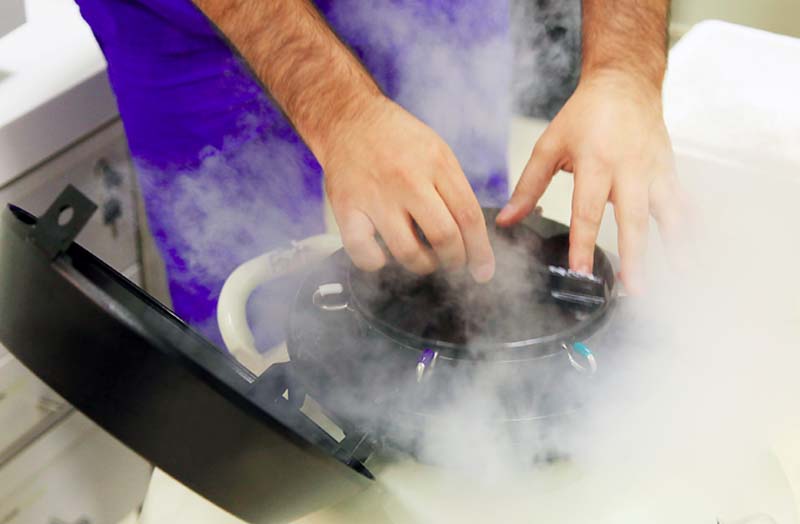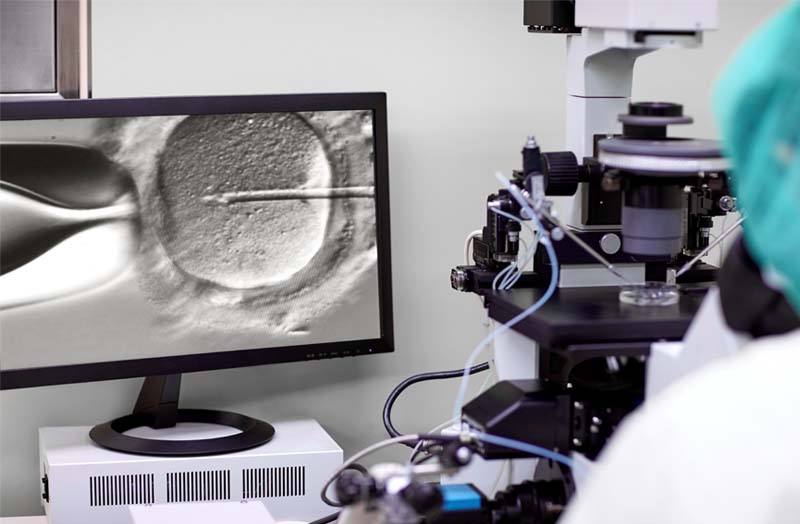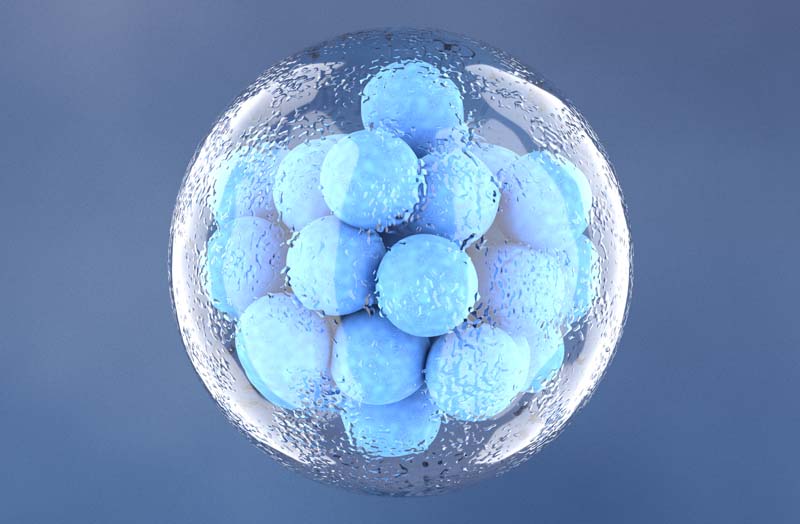Egg freezing
Egg freezing is a method of fertility preservation that allows you to freeze your eggs now, when they are of a higher quality, to give yourself a greater chance of having a successful pregnancy later.


What is egg freezing?
More and more women today are choosing to freeze their eggs. This popular procedure can be completed in as little as two weeks and can be done without impacting on your day-to-day life.
Egg freezing involves the extraction and freezing of your eggs, which can then be thawed, fertilised, and implanted in the uterus during in vitro fertilisation (IVF) at a later date.
Egg freezing does not reduce your future fertility. You will continue to produce eggs after the procedure and be able to fall pregnant naturally.
Egg freezing: The 7-step process
Egg freezing success rates
What to remember
It’s important to remember that not every egg retrieved will result in an embryo. The amount of eggs retrieved will decrease in number as they go through the thawing, fertilisation and embryo growth phases.
Recommendations
Consider the following recommendations* for the number of eggs you should aim to freeze based on your age:
- If you’re under 35, you should freeze 20 mature eggs for an 85% chance of having at least one child.
- If you’re between 38 to 40, you should freeze 30 mature eggs for a 75% chance of having at least one child.
- If you’re between 40 to 42, you should freeze 30 mature eggs for a 50% chance of having at least one child.
*Fertility and Sterility – VOLUME 105, ISSUE 2, P459-466.E2, FEBRUARY 2016
Speak with our Patient Care Team
Our English speaking Patient Care Team are on hand to answer all of your questions about egg freezing.
Please complete the form and we’ll be in touch as soon as possible.
Egg freezing prices
Ferticentro ensures transparent pricing for all treatments, reflecting our commitment to ethical practices and the latest technology, without hidden costs. To further support our patients, we offer a specialized credit line to ease the financial burden and make advanced fertility solutions accessible to all.
Egg freezing
Why choose us?
For 15 years, we have been ISO 9001 certified, underscoring our unwavering dedication to quality.
We offer a full set of services, allowing us to accompany you on the entire journey towards parenthood.
We prioritise transparency by providing clear, upfront pricing
Ferticentro stands at the forefront of fertility technology in Portugal, pioneering innovations that have reshaped the field.
For over twenty years, we’ve helped thousands worldwide achieve their family goals.
Want to know more?
FAQS
How long can my eggs be frozen?
In Portugal, eggs can be stored for renewable periods of 5 years. However, you can only use the embryos created with your eggs until the day before you turn 50.
Will I still have eggs left in the future if I don't undergo egg freezing?
The number and quality of your eggs decrease naturally as you age. By the time you reach your late 30s and 40s, fertility typically declines significantly. However, it’s essential to remember that fertility varies among people, and there are no guarantees.
Without egg freezing, your fertility potential will be subject to the natural ageing process, which may result in a reduced chance of conceiving as you get older.
Is the process very painful?
Egg freezing generally involves manageable discomfort rather than pain. The process consists of ovarian stimulation, egg retrieval, and freezing. During ovarian stimulation, hormone injections can lead to temporary pelvic discomfort, bloating, and mood swings. Egg retrieval is a minor surgical procedure performed under anaesthesia, causing brief post-procedural discomfort, including mild cramping or pelvic pressure. Recovery typically takes one to two days and can be managed with over-the-counter pain relievers. Severe side effects, like ovarian hyperstimulation syndrome (OHSS) occur in less than 1% of the cases and can be controlled with a proper management of the process. Talk to our fertility specialists about what to expect during the treatment phases.
Could my eggs be stolen?
At Ferticentro, the risk of egg theft is extremely low due to stringent security measures in place. Our accredited facility employs biometric access control, 24/7 surveillance, intrusion alarms, backup power systems, strict access protocols, and specialised cryogenic storage tanks.
What happens to my eggs if I don't end up using them?
If you have frozen eggs that you do not use, we can offer long-term storage, allowing you to continue storing them for a fee payable per 5-year period. You may decide to discard your frozen eggs if you no longer wish to use them. In some cases, frozen eggs may be used for research or scientific studies with your informed consent.
Will I have any eggs left after egg freezing?
Yes, after egg freezing, you will still have eggs left in your ovaries. Egg freezing involves harvesting a portion of your eggs for future use, preserving them at a specific point in time. The number of eggs remaining post-procedure depends on factors like your ovarian reserve, response to stimulation, age, and overall health. Your natural egg supply continues to decline with age, and the quality may diminish, affecting fertility. Egg freezing allows you to preserve a subset of eggs to potentially improve your chances of conception in the future, especially if age-related fertility declines become a concern. However, it doesn’t deplete your entire egg reserve.
Is there a chance my eggs could be accidentally given to someone else?
No. We maintain stringent protocols to ensure the secure and accurate storage and retrieval of reproductive materials, such as eggs and sperm. Measures include meticulous labelling, specialised cryogenic storage with individual compartments, comprehensive verification steps, and the employment of trained staff following strict procedures. Moreover, Ferticentro holds the distinction of being the pioneering clinic in Portugal to implement RI Witness, an automated, human-independent system designed to safeguard against mix-ups and cell mishandling. This cutting-edge technology ensures the safety of both patients and staff throughout the entire process.
Are there any side effects to the medication I take?
Medications used for egg freezing may have side effects. These can include mild abdominal discomfort, bloating, and, rarely (less than 1% of the cases), ovarian hyperstimulation syndrome (OHSS – this can lead to hospitalisation if not treated and prevented properly). Hormonal changes may lead to mood swings, breast tenderness, and fatigue. Self-administered injections can cause injection site reactions. These side effects vary among individuals, and your fertility specialist will monitor your response to minimise risks. While side effects can be uncomfortable, they are generally manageable, and the potential benefits of egg freezing, preserving fertility options, often outweigh these temporary discomforts. It’s crucial to discuss any concerns with your specialist before starting treatment and it is also very important to signal any unattended effects to our medical and nursing teams.
